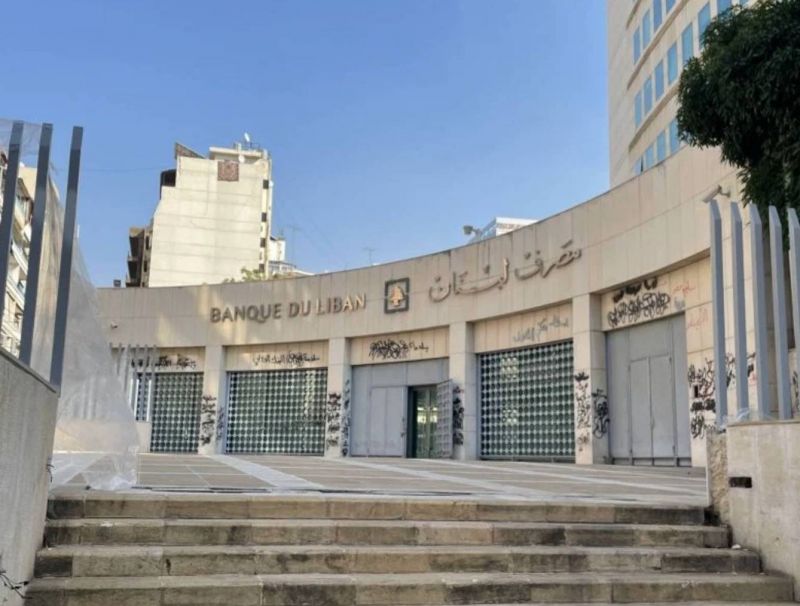
One of the secondary entrances of the Banque du Liban, Beirut. (Credit: PHB/L'Orient Today)
The war between Hamas and Israel has diverted attention from Lebanon's unresolved banking restrictions issue, which have been in place for years now, preventing many depositors from freely accessing their funds.
Despite the prolonged crisis, Parliament has yet to enact any legislation on the matter. Consequently, it remains the responsibility of the Banque du Liban (BDL)'s circulars to either regulate or legitimize these restrictions.
While the BDL, or Lebanon’s Central Bank, has been relatively silent since the war began on Oct. 7, it recently made a notable change to one of the provisions outlined in main circular N°158. This amendment aims to broaden the conditions of eligibility, now encompassing specific categories of depositors who changed banks in Lebanon after the outbreak of the crisis in 2019.
Circular 158 authorizes selected beneficiaries each month, under specific terms and conditions, to withdraw “fresh” (or in cash) $300 or $400 from their “lollar accounts” or accounts denominated in dollars or foreign currency funds deposited before Nov. 19, 2019.
On that date banks generalized the restrictions and bank customers could no longer withdraw their deposits dollars in cash, or in Lebanese lira at the real market. Meanwhile, the national currency has lost 98 percent of its value in four years.
ABL reportedly seeks clarification
The recent intermediate circular N°682, issued on Friday, introduces modifications to include depositors who opted to switch banks after Oct. 31, 2019. This group was previously excluded from the circular’s provisions.
Additionally, the amendment extends eligibility to holders of joint accounts funded from an individual account after Oct. 31, and vice versa, who were also excluded under the previous arrangement.
According to a banking source who wished to remain anonymous, the majority of these are customers who decided to distribute their funds between several different banks and accounts when reports of illegal haircuts began to circulate back in 2019.
"Since all the formal haircut initiatives proposed by the authorities focused on the largest deposits, certain bank customers aimed to mitigate their vulnerability to such measures,” the source explained. “They did so by opening additional accounts in multiple banks and transferring a portion of their funds, keeping the amounts low enough to evade any potential haircut.”
The various projects that have been circulating since the start of the crisis guaranteed all deposits under $100,000, without however promising a one-off repayment.
Lebanon Debate reported on Friday that the Association of Banks in Lebanon (ABL) asked BDL for clarification on the implementation of the amended circular — something confirmed by a source within the association.
Circular 158 was adopted on June 8, 2021, becoming effective a few weeks later.
The circular’s conditions have been amended several times since its inception, with one notable exception: BDL is solely responsible for selling dollars to the commercial banks which, in turn, would make them available for withdrawal to their customers.
To this end, BDL has been tapping into foreign exchange reserves, which have significantly diminished since the onset of the crisis due to various factors.
This article was originally published in French in L'Orient-Le Jour. Translation by Sahar Ghoussoub.